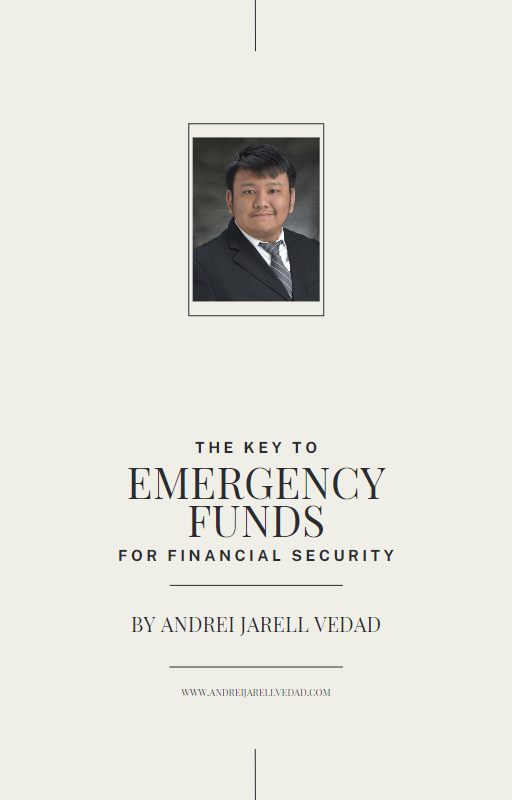
Table of Contents
Tips for Managing Money as a Student
Importance of Managing Money as a Student
As a student, managing your money effectively is crucial for your financial well-being. It’s common for students to overlook the importance of good money management skills, but it’s an essential life skill that can have a significant impact on your future.
Benefits of Good Money Management Skills
Learning how to manage your money effectively can benefit you in numerous ways. Firstly, it can help you avoid debt and financial stress. Secondly, it can help you achieve your financial goals, whether it’s saving up for a new laptop or paying off student loans. Lastly, good money management skills can lay the foundation for a lifetime of financial security and success.
Overview of the Blog Content
In this blog post, we’ll explore various tips and strategies for managing your money effectively as a student. We’ll cover topics such as assessing your financial situation, setting financial goals, developing good habits, exploring student-friendly financial options, using technology to your advantage, planning for the future, and much more. By the end of this post, you’ll have a solid understanding of how to manage your money effectively as a student, and be well on your way to achieving your financial goals.
Assess Your Financial Situation

As a student, it’s crucial to understand your financial situation and take control of your money. Assessing your financial situation is the first step towards achieving financial stability and success.
Understanding Your Income and Expenses
The first step in assessing your financial situation is to determine your income and expenses. It’s essential to have a clear understanding of your income, including any allowances, scholarships, or part-time jobs. Similarly, you should be aware of your monthly expenses, such as rent, groceries, transportation, and other miscellaneous costs. By understanding your income and expenses, you can make informed financial decisions and plan accordingly.
Creating a Budget Plan
Once you have a clear understanding of your income and expenses, the next step is to create a budget plan. A budget plan helps you manage your money effectively by tracking your spending and ensuring that you don’t overspend. Start by listing your monthly income and expenses and allocating a specific amount to each category. Make sure to prioritize essential expenses such as rent, utilities, and groceries before allocating funds to discretionary spending. You can use budgeting apps or software to make the process easier and more efficient.
Tips for Reducing Expenses
Reducing your expenses is another essential step towards achieving financial stability. There are many ways to reduce expenses, such as cutting back on unnecessary spending, meal prepping instead of eating out, using public transportation instead of owning a car, and buying used textbooks instead of new ones. By reducing your expenses, you can free up more money to put towards your financial goals, such as paying off student loans or saving for a down payment on a house.
In conclusion, assessing your financial situation is a crucial step towards achieving financial stability as a student. By understanding your income and expenses, creating a budget plan, and reducing your expenses, you can take control of your finances and make informed financial decisions.
Set Financial Goals
As a student, it’s important to have a clear idea of what you want to achieve financially, and setting goals is a great way to accomplish that. Goals can help you stay motivated and focused, and ensure that you’re making progress towards the future you want.
SMART Goal-setting Framework
One of the best ways to set effective financial goals is to use the SMART framework. This acronym stands for Specific, Measurable, Achievable, Relevant, and Time-bound. By following this framework, you’ll be able to create goals that are clear and actionable, and that can help you stay on track.
Short-term and Long-term Financial Goals
When setting financial goals, it’s important to distinguish between short-term and long-term objectives. Short-term goals are those that you can achieve within the next few months or a year, while long-term goals are those that may take several years to accomplish.
Examples of Financial Goals for Students
Some examples of short-term financial goals for students might include building an emergency fund, paying off credit card debt, or saving up for a study abroad program. Longer-term goals might include saving for graduate school, buying a car, or starting a retirement fund.
Ultimately, the most important thing is to set goals that are meaningful to you, and that will help you achieve the financial future you want. With a clear vision of what you want to accomplish, and a plan to get there, you’ll be well on your way to financial success.
Develop Good Habits

Developing good financial habits is crucial for students to achieve financial stability in the long run. It is important to keep track of your expenses and income to avoid overspending and debt. In this section, we will discuss some tips to help you develop good financial habits.
Avoiding Unnecessary Expenses
Avoiding unnecessary expenses is the first step towards good money management. It is easy to get tempted by luxurious items, but you should always prioritize your needs over your wants. You can start by creating a list of your necessary expenses such as rent, food, and utilities. By doing this, you can easily identify where you can cut back and avoid any unnecessary expenses.
Building a Savings Habit
Building a savings habit is another important financial habit that students should develop. Saving a little amount of money each month can go a long way in building your financial future. You can start by creating a separate savings account and setting a fixed amount of money to save each month. This will help you stay accountable and track your progress.
Developing a Healthy Relationship with Money
Lastly, developing a healthy relationship with money is crucial for long-term financial success. This means learning how to manage your money, being responsible for your financial decisions, and avoiding impulsive purchases. One way to develop a healthy relationship with money is by tracking your expenses and understanding where your money goes. This will help you make informed decisions and avoid any financial pitfalls.
By developing these good financial habits, you can set yourself up for financial success and achieve your financial goals. It takes discipline and determination to develop these habits, but the rewards are worth it in the end.
Explore Student-Friendly Financial Options

As a student, managing finances can be a daunting task. However, there are various financial options available to help you cope with the expenses of college life. In this section, we will explore student-friendly financial options that can help you achieve your goals without sacrificing your financial stability.
Student Loans
Student loans are a popular option for students who require financial assistance to pay for their college education. These loans come with a low-interest rate, which can help you finance your education without breaking the bank. There are different types of student loans, such as federal student loans, private student loans, and parent loans. Make sure to explore all the options and choose the one that fits your financial situation.
Grants and Scholarships
Grants and scholarships are another option for students who require financial assistance. These awards are usually merit-based or need-based, and they do not require repayment. Applying for grants and scholarships can be a competitive process, so it’s important to start early and apply to as many as possible.
Part-time Jobs and Work-Study Programs
Part-time jobs and work-study programs are an excellent way to earn extra income while studying. Work-study programs are usually offered by colleges and universities, and they provide students with part-time jobs on campus. These jobs can be in the library, cafeteria, or other areas of the campus. On the other hand, part-time jobs can be outside of the campus, such as tutoring, freelancing, or retail work. Having a job not only helps you earn extra money but also teaches you valuable skills such as time management and responsibility.
Exploring these options can help you find the financial assistance you need to succeed in college. Make sure to do your research, apply to as many opportunities as possible, and choose the ones that align with your financial goals.
Use Technology to Your Advantage

As a student, it’s important to be financially savvy and to use all the resources at your disposal to stay on top of your finances. In today’s digital age, technology can be a powerful tool for managing your money effectively.
Money Management Apps
There are a variety of money management apps available that can help you keep track of your spending, create a budget, and set financial goals. These apps allow you to link your bank accounts and credit cards, so you can see all of your transactions in one place. Some popular money management apps include Mint, YNAB (You Need A Budget), and PocketGuard.
Online Budgeting Tools
In addition to money management apps, there are also online budgeting tools that can help you create and track your budget. These tools allow you to set up different budget categories and allocate your income accordingly. Some examples of online budgeting tools include EveryDollar and Empower (Previously Personal Capital).
Piso Buddy by Andrei Jarell Vedad

A few weeks ago, I joined the NoCodeXSoftr Challenge 3. The project I submitted is a simple personal budgeting app. In the challenge, I won 3rd place for the best projects that were submitted on Challenge 3.
Please note that my budgeting app is still in beta testing, so there will be some bugs. Rest assured, I’m working on improving my budgeting app to meet the industry standard.
Speaking of, check out the projects of the other participants of the NoCodeXSoftr Challenges!
Cashback and Reward Programs
Many credit cards offer cashback or reward programs for using them to make purchases. These programs can earn you points or cash back for purchases you would already be making. Some credit card issuers even offer bonus rewards for certain categories of spending, such as dining or gas purchases. Just make sure to use these programs responsibly and pay off your credit card balance in full each month to avoid accruing interest charges.
Using technology to your advantage can make managing your finances as a student much easier and more efficient. Whether it’s using a money management app to track your spending or a cashback program to earn rewards on your purchases, there are many options available to help you stay on top of your finances.
Plan for the Future

As a student, it can be challenging to think beyond your immediate expenses and focus on your long-term financial goals. However, planning for the future is essential to ensure financial stability and security. In this section, we will explore some key strategies for planning for the future.
Building an Emergency Fund
It’s always a good idea to have a safety net in case of unexpected expenses or emergencies. This is where an emergency fund comes in handy. An emergency fund is a sum of money set aside to cover unforeseen expenses, such as car repairs, medical bills, or unexpected travel costs. Aim to save at least three to six months’ worth of living expenses in your emergency fund.
Saving for Future Expenses
Whether it’s a down payment on a house, a car, or a dream vacation, saving for future expenses is crucial. You can break down your savings goals into short-term and long-term goals. Short-term goals can include saving for a new laptop, while long-term goals can include saving for a down payment on a house. Determine how much money you need to save, create a timeline, and set aside a portion of your income towards your goals.
Investing in the Future
Investing is an excellent way to grow your money over time. While investing can be intimidating, it’s not as complicated as it may seem. You can start by investing in low-cost index funds or exchange-traded funds (ETFs) that track the stock market. You can also consider consulting a financial advisor to help you choose the right investments for your goals.
Conclusion
Planning for the future is crucial for achieving financial stability and security. By building an emergency fund, saving for future expenses, and investing wisely, you can set yourself up for success in the long run. Don’t forget to revisit your goals regularly and adjust your plan as needed to stay on track.
In conclusion, managing your money as a student is crucial for financial success in the future. By understanding your financial situation, setting SMART financial goals, developing good money habits, exploring student-friendly financial options, using technology to your advantage, and planning for the future, you can take control of your finances and achieve financial stability.
To recap, start by assessing your income and expenses, creating a budget plan, and finding ways to reduce expenses. Next, set both short-term and long-term financial goals using the SMART goal-setting framework and examples for students. Then, develop good habits like avoiding unnecessary expenses, building a savings habit, and developing a healthy relationship with money.
Exploring student-friendly financial options like student loans, grants and scholarships, and part-time jobs and work-study programs can also help you manage your finances. You can use technology to your advantage with money management apps, online budgeting tools, and cashback and reward programs. Finally, plan for the future by building an emergency fund, saving for future expenses, and investing in your future.
It’s important to start early and stay disciplined in your money management efforts. Seeking help when needed can also be beneficial, whether it’s from a financial advisor, a family member, or a friend. Remember, good money management skills are not only important for your financial success but also for your overall well-being.
Relevant Blog Posts
Here are some relevant blog posts that you can read after this one:
- The Key To Emergency Funds For Financial Security
- Ways To Secure Your Finances Right Now
- Building An Emergency Fund On A Low Income
- How To Stay Motivated To Achieve Your Financial Goals
- Budgeting For College Students in the Philippines
- How To Save Money On A Tight Budget
- 10 Lucrative Side Hustles You Can Start from Home Today
- 10 Profitable Small Business Ideas for Filipinos in 2023
- Passive Income Ideas For Filipinos
- Frugal Living Tips For Filipinos
- Smart Habits That Helps You Save Money
- Get Debt-Free: Expert Tips and Tricks to Pay Off Your Debts
- Money Management Made Easy: Why You Need Separate Budget Accounts
- Budgeting 101: How to Create a Personal Budget that Works for You
I hope these blog posts are useful and informative to you.
For Your Reference
Budgeting
For your reference, you can read these blog articles relevant to budgeting:
- What Is Financial Literacy?
- Budgeting When You’re Broke
- The Beauty of Budgeting
- 5 Rules to Improve Your Financial Health
- Calculate Your Debt-to-Income Ratio
- 8 Financial Tips for Young Adults
- 5 Signs That You’re Living Beyond Your Means
- 4 Easy Budgeting Techniques
- 3 Common Budgeting Challenges to Overcome
- Zero-Based Budgeting: Benefits and Drawbacks
- Best Budgeting Apps
- What Is a Budget? Plus 10 Budgeting Myths Holding You Back
- Basic Budgeting Tips Everyone Should Know
- Budgeting Basics To Help You Manage Your Money
- Understanding Budgeting & Personal Finance
- 5 Simple Budgeting Guidelines to Follow
- The 50/30/20 Rule of Thumb for Budgeting
- Strategies for Budgeting and Saving Money
- Different Budgeting Techniques to Try
- Understanding Budgeting & Personal Finance
- Budgeting for Kids: How To Teach It and Why It Matters
- Budgeting for Teens: What You Need to Know
- 10 Budgeting Pitfalls and How to Avoid Them
Debt
For your reference, you can read these blog articles relevant to debt:
- What Is Debt?
- Student Loan Debt vs. Credit Card Debt
- Good Debt vs. Bad Debt: What’s the Difference?
- A Step-by-Step Guide To Getting Out of Debt
- Choose the Debt Payoff Strategy That’s Right for You
- A Guide to Debt Settlement
- 12 Tips for Sticking to Your Debt Payoff Plan
- 6 Steps to Get Out of Debt
- How to Pay Off Credit Card Debt
- What Is the Debt Avalanche Strategy?
- What Is Debt Consolidation?
- What Is a Debt Repayment Plan?
- How to Create a Debt Elimination Plan
- Debt Avalanche vs. Debt Snowball: What’s the Difference?
- Debt Settlement: Cheapest Way to Get Out of Debt?
Emergency Funds
- Why an Emergency Fund Is More Important Than Ever
- How to Build an Emergency Fund
- The best protection against bad trouble is good planning
- How Much Cash Should I Keep in the Bank?
- Emergency Funds
- 8 Reasons You Need an Emergency Fund
- What Amount Do Retirees Need in an Emergency Fund?
- How To Use Your Emergency Fund and Make It Last
- Rule of Thumb: How Big Should Your Emergency Fund Be?
- When to Use Your Emergency Fund
- Rainy Day Fund vs. Emergency Fund – Do You Need Both?
- It’s Time to Build a Better Emergency Fund
- How to Prepare Your Emergency Fund
- Emergency Cash Reserves
- 7 Tips for Building an Emergency Fund
Disclaimer
I am not a financial advisor. Please note that the information provided on this website is for general informational purposes only and should not be considered as financial advice.
While I strive to ensure the accuracy and timeliness of the information presented, financial situations can vary, and the content may not be applicable to everyone. Therefore, it is essential to consult with a qualified financial professional or advisor before making any financial decisions.
It is important to understand that investing and financial planning involve risks, and there are no guarantees of specific outcomes or returns.
By accessing this website or engaging in consultations, you acknowledge and agree that any actions taken based on the information provided are at your own risk, and I shall not be held liable for any direct or indirect consequences arising from such actions.
Get My E-books For Free!


Take control of your financial future and download my e-books: “Ways to Secure Your Finances Right Now” and “The Key To Emergency Funds For Financial Security” today! This comprehensive guides are packed with practical strategies and expert advice to help you achieve financial security and improve your financial literacy.
By subscribing to my Substack Newsletter, you’ll gain access to exclusive content, regular updates, and valuable insights on personal finance. You’ll stay informed about the latest financial trends, investment opportunities, and money-saving tips.
Don’t miss out on this opportunity to equip yourself with the knowledge and tools needed to secure your financial future. Join our community of motivated individuals who are committed to achieving financial freedom and success.
Subscribe to my Substack Newsletter today and get instant access to the e-book “Ways to Secure Your Finances Right Now.” Take the first step towards a brighter financial future. Your journey to financial security starts now!
Affiliate Links Disclaimer
My blog posts contain referral/affiliate links, so I can potentially earn via commission. It would help me a lot when you use my referral/affiliate links

Andrei Jarell Vedad is a passionate financial literacy advocate from the Philippines. With a background in Information Technology and currently pursuing a law degree, Andrei combines his knowledge and expertise to empower individuals in managing their personal finances. Through his blog and extensive research, he shares practical tips, strategies, and thought-provoking articles to help readers make informed financial decisions and achieve their financial goals. With a global perspective, Andrei aims to inspire positive change and foster financial well-being, not only in the Philippines but also worldwide.



